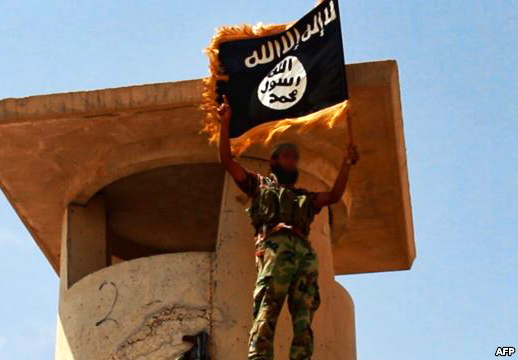Networks against the states?
Yesterday, the the American aircraft carrier called “George Bush” appeared in the Persian Gulf to “closely watch” the Iraqi events. As we know, the “Islamic State of Iraq and the Levant” Sunni militia grouping continues developing its military successes, and is threatening to blow in the direction of Baghdad. The irony of destiny is that, as we all know, the business interests of George Bush’s (probably the aircraft carrier was named after the elder Bush) family are greatly connected with the oil of Saudi Arabia, and this country is the only one, which is more or less “transparently” financing the aforementioned armed grouping. Sunni insurgents that have gained tremendous impetus are not to the liking of the United States and Shiite Iran at the “official” level. These two opposing each other countries in many respects declare that they are ready to help the Iraqi government in the fight against these assaults, but they are not ready to send troops to Iraq and intervene in the conflict.
Turkey also claims that these militants are terrorists because they have taken hostage the Turkish consulate employees in Mosul. But remember that the same type of grouping had attacked the Syrian Kessab city mostly populated by Armenians, by penetrating into Syria from the Turkish border. And so, the first impression is that the states are just “pretending” by condemning the “Sunni terrorists.” Maybe this is also the moment, but the problem, probably, is deeper. Experts claim that in addition to Saudi Arabia, given grouping is equipping and financing at least two more important sources, the Islamic networks being developed throughout the world in recent years and different special services, including those of aforementioned countries. According to this theory, there are worldwide supranational network institutions, which often enter into the competition with the states’ and their conditionally called “national interests”. They are work in different methods, in one place they are just preaching (partly it is what we call in everyday language a “sectarian movement”), in other places they are supplying weapons and firing.
The state special services of powerful countries (e.g. the United States), naturally, penetrate these networks, and try to create their own networks, sometimes they prepare Bin Laden, by whose hands they literally fall into the fire. According to this view, the “Islamic State of Iraq and the Levant” are exactly this kind of phenomenon. The states, at this or that level of sincerity, are against this grouping. But, sometimes they are powerless before these networks. Having millions of fellow citizens in the world, we, Armenians, can and must build on our network, which may not be so strong like the rest, but will solve an important issue for us. It is, of course, a complex and detailed work that cannot be limited to series of events like “Ari Tun” program.
ARAM ABRAHAMYAN
























































